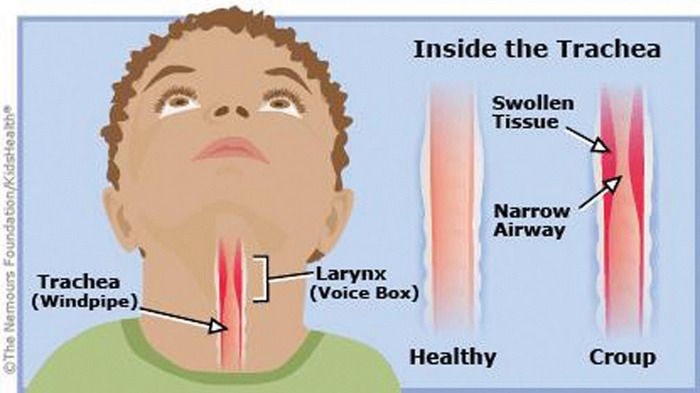

Child Health
By Dr Shan Narayanan
Consultant General Paediatrician, Hospital Fatimah
WHAT IS CROUP?
Croup is a childhood condition that affects the voice box (larynx), windpipe (trachea), the airways to the lungs (the bronchi). It is thus also known as laryngotracheobronchitis. Croup usually affects young children aged between six months and three years, with most occurring in one-year-olds.
However, croup can sometimes develop in babies as young as three months, and older children up to 15 years of age. Adults can also get croup but this is rare.
WHAT CAUSES CROUP?




HOW DOES CROUP SPREAD?
The virus spreads easily through coughing, sneezing, and respiratory secretions (mucus and droplets from coughing or sneezing). Children with croup should be considered contagious for three days after the illness begins or until the fever is gone.
WHAT ARE THE SYMPTOMS OF CROUP?
- Croup often begins like a normal cold, eg a runny nose and cough.
- The cough will change to become harsh and barking.
- The voice may be hoarse.
- They may have a harsh noise when breathing in, called ‘stridor’.
- The symptoms are often worse at night and reach their worst on the second or third night of the illness. The illness may last three to four days.
HOW IS CROUP DIAGNOSED?
Your child’s doctor will ask his symptoms and examine him. The giveaway symptom is the harsh noise (stridor) when breathing in.
HOW IS CROUP TREATED?
Most of the time croup can be treated at home. Croup can be scary, as the child has a noisy breathing and at times can have breathing difficulty.
Comforting your child and keeping him or her calm is important, as crying and unsettledness worsen airway obstruction.
If the symptoms are persistent, consult your doctor. Your doctor will give him a steroid medication (dexamethasone) to reduce the airway swelling. Your child’s fever will also be treated. If the child has breathing difficulty, your doctor may give him an inhaled medication, adrenaline.
Most cases of croup clear up within 48 hours. In some cases symptoms can last longer.
At times children develop complications such as pneumonia or middle ear infection. These are treated accordingly by your doctor.
HOW CAN I HELP TO PREVENT CROUP?
Croup is difficult to prevent. Good hygiene is the main defence against croup. Regular hand-washing and cleaning surfaces is the most important. Keeping your child away from anyone who is sick also helps. Keep your child’s vaccination up to date. The diphtheria and Haemophilus influenza type b vaccines offer protection from some of the rarest but most dangerous upper airway infections. There isn’t a vaccine yet that protects against parainfluenza viruses.


